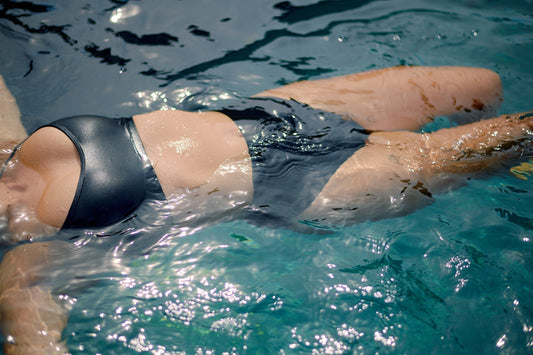
The Problem With Plastic
Jane H.Here’s the thing about plastic - it’s essential to many aspects of our modern life. Durable, waterproof, and moldable, plastics make possible many advancements in medicine, technology and communication. It’s in everything - from clothes to coffee cups, It also comes with one big problem - it won’t decay.
As long as we’ve had plastics, we’ve been dealing with more and more garbage generated from plastic, and a lot of this garbage is ending up in our oceans. As a biologically inert substance (meaning it doesn’t react chemically with the majority of other substances), it’s impervious to many of the functions that break organic materials down. This means we have landfill waste, harm to animal life, and a large floating island of plastic floating around the Pacific.
Not so ideal.
Even as we’re waking up to the damage caused by our overdependence on plastic, plastic consumption is increasing exponentinally. A search of plastic waste found in the ocean found that the majority of the plastic pulled from our water are proportionally more likely to be from after the year 2000. Plastic may be unavoidable, but we don’t have to make it inevitable. Here’s three simple ways you can make your plastic consumption more sustainable.
Advocate For Recycling Facilities
Tell the communities that you live in that having adequate recycling facilities is important. Although you can head down to city hall, feel free to check in with local businesses and organizations about having recycling facilities. The politics of waste management are real, and too often, not having a blue box is seen as okay. It’s not.
While you’re at it, encourage them to replace single use plastic containers with compostable alternatives, or even better, offer discounts for bringing your own containers.
Ditch Single Use Plastics
One of the major motivators of making the switch to reusable pads is to ditch the single use plastic that comes with pads and tampons. Besides being horrifyingly uncomfortable, plastic menstrual products don’t decompose. Same goes for straws, single-use water bottles and plastic bags.
Spend a little time and money picking up reusable alternatives to these products - like a foldable shopping tote or a reusable coffee cup. Even better - go one step further and organize a clothing swap, source a zero waste grocery store and start composting.
Educate Yourself About Your Products
Feel like you’re drowning in plastic? Don’t purge it all in favour of glass jars and fabric bags. Use up your containers and sustainably dispose of them. Consider how you take care of things - even using cold water washes improve microfiber shedding. Also, feel free to follow up on the environmental claims of new products - we’re improving our manufacturing and supply chain processes all the time, but sometimes it’s not green, it’s just greenwashing.
Lunapads, as a company, is always critiquing our own systems - over the past few years, we’ve increased our use of organic cotton, reduced our carbon footprint by over 60% and moved more of our production to a zero waste model. Making greener choices is a lifetime process - we learn more about how we can improve, and we gain greater access to resources to make it happen.
Plastic might be unavoidable, but it is manageable. Making smarter choices can help you harness plastic’s benefits in a way that is sustainable for our planet.




